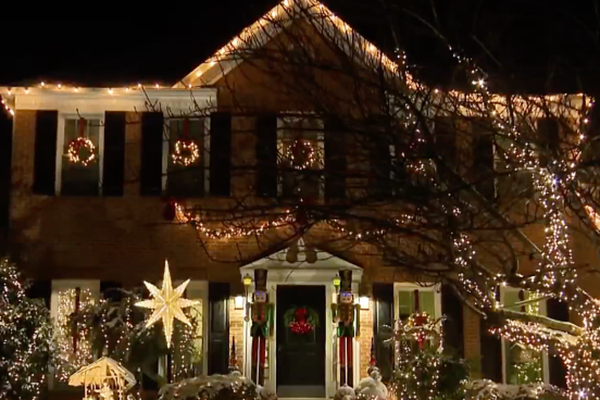
Those in peril at sea are the subject of this arresting ghost story from Cornish film-maker Mark Jenkin. Set in a fishing village, it explores the intimate presence of death and the disquieting claustrophobia of family and community – qualities often assumed to be eternal virtues.
Maybe a film of just this kind was always what Jenkin’s distinct film language was waiting for. His technique and his quasi-primitivist aesthetic favour the eerie and the uncanny; his films have the texture of early cinema updated to the present day, shot on 16mm, developed by hand in such a way as to create scratches on the print, with dialogue and ambient sound overdubbed. It all creates a drama that feels like a remembered dream, and when there are actual dream sequences the gap between the illusion and reality is very slight. The movie itself feels to me like a kind of found object, and in this digital age it is vanishingly rare to encounter something that makes you think of the lost physical reality of celluloid whirring through a projector’s old-fashioned metal sprockets.
Jenkin is returning here to the world of his 2019 debut feature Bait: people who make a tough and precarious living from going out on fish trawlers. (Bait was in blackand white, but this is in the rich and vivid colour more reminiscent of Super 8 home movies.) A local fisher in a depressed fishing town, played by Edward Rowe, is astonished one morning to see a certain trawler bobbing innocuously in the harbour: the Rose of Nevada. This was a boat that was lost 30 years before in a heavy storm. The boat has returned from the dead. How on earth has this happened?
Stunned, he approaches the widow of one of the drowned fishers (Rosalind Eleazar), a woman with two grownup daughters, and simply tells her the boat is back, and she responds with the same woozy, suppressed dread as him. But soon he feels that the boat should be put to work; a grizzled captain (Francis Magee) is recruited, along with two young crew members from the town: thoughtful Nick (George MacKay) and boozy drifter Liam (Callum Turner). The latter flirts with the lost fisher’s daughter in a pub; she gives him a present of her late dad’s old red cap, which he wears on board.
Nick is disturbed to see the words “Get off the boat now” scratched into the ghost ship’s woodwork below deck, and once they arrive back, their craft bulging with fish, they find something even stranger; the town seems fuller, livelier, the pub looks in better shape and allows smoking indoors. The awful truth is that they have gone back in time to 1993, three years before Nick’s birth, and everyone in town thinks that Nick and Liam are the two men who vanished. Have they somehow cosmically contrived a happier future for the two men than the one that actually happened? Or was it their reality that was in fact unreal: a premonition of disaster and gloom from 30 years ago?
Either way, Nick is deeply disturbed to find Liam simply accepting the situation, and blandly accepting what appears to be an agreeable new reality of living with the widow – that is, the mother of the woman he had been flirting with – as a husband and father. For him, it is an outcome rather better than any he had been imagining. Nick is horrified by this existential imprisonment, and perhaps it is emblematic of these young men’s ambivalent attitudes to the livelihoods and existences of their parents’ generation: going out to sea, in discomfort and even danger, for something that may not provide a stable income. And he feels oppressed by what the captain is telling him: that people on shore are relying on them.
In the hands of a conventional film-maker, this would be a conventional scary movie, like one of Roald Dahl’s Tales of the Unexpected, crossing all the “t”s and dotting all the “i”s of scariness. Jenkin makes of it something more elusive and complex, with a strangeness and enigma present from the beginning; the film appears to be saying that there is something unknowable here even without the time slip. It’s another really bold and distinct statement from Jenkin.
• Rose of Nevada screened at the Venice film festival







